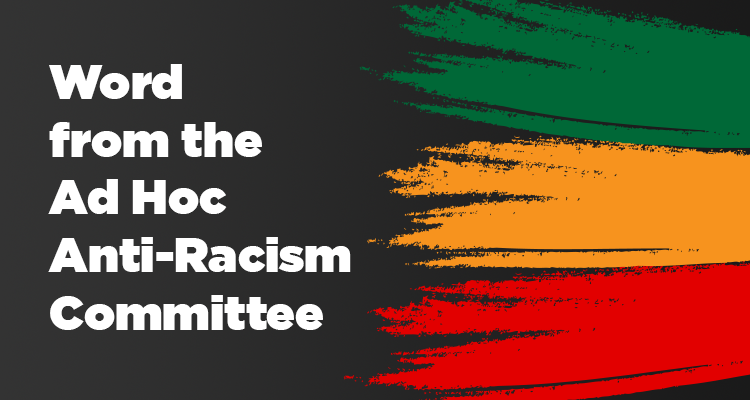
The Black History Month
As part of Black History Month, the ad hoc anti-racism committee wanted to give a voice to two of its members. We present to you SarahJane Pavillon, Licensed Practical Nurse in Quebec City for 15 years and Myriam Philippeaux, also a licensed practical nurse for more than 15 years.
What does Black History Month mean to you?
Myriam:
First, me, I’m black and not only one month a year. My story lives on in time and it’s important for me to think about all the black people who came before us, the ones who paved the way for us, so that we can do what we do. That’s what Black History Month means to me. It also means that we need to take the time to do a better job of teaching the history of black people, whether in schools or elsewhere.
SarahJane:
For me, this month is for celebrating the success of black people despite the obstacles put in our way and the rights taken from us. Think about Nelson Mandela, Harriet Tubman, Martin Luther King Jr., Barak Hussein Obama. This means we can dream of greatness and fight, despite, but especially because we are black. This month also has an impact on other marginalized people: it’s a month that reminds us of struggles and that we must never stop fighting against racism.
Are there specific issues for black women in the health sector?
Myriam:
Yes, there are many issues for black women in the healthcare system. We face deep-rooted stereotypes in the field, both from patients and sometimes from our colleagues. Black women carry their experiences on their shoulders. We do not start from the same point as we face a double burden: our burden as women and the burden of representing all other black women. If you give your opinion or speak freely, you are considered an angry woman: the famous “angry black woman” comment is never far away.
SarahJane :
Yes, there are issues from the outset. I am asked regularly if I graduated here in Québec, which I did, by the way. I feel that I must justify my education even before I give care. And sometimes, when I arrive in front of a patient, he or she will ask me if I did my course in Québec, as if he or she has doubts about my skills. Me, I don’t ask my colleagues where they studied. And, why is the same question not asked of a white person who comes from France (our French and European colleagues also experience xenophobia)? Like a kind of injunction to prove my competence constantly. Is it fear of the unknown or ignorance? I don’t know, but I always feel that no matter how many times I prove it, it is never enough.
Why are you involved in your local union teams? And why make the jump to the ad hoc anti-racism committee?
Myriam:
The reason I joined the local union is because I am an activist and I was told by many of my colleagues that I should get involved in the union. Other people, in addition to my racialized colleagues, tell me that they would like the union teams to be a little more diversified. To my knowledge, I was the first black woman elected to the FIQ Capitale-Nationale union at that time.
Being on the ad hoc anti-racism committee is somewhat like a continuation of my union activism. We must show our colleagues that there is a place to discuss these issues freely and that the FIQ is setting up such an important committee to show that there is a real will to change things. Hence the importance of being able to discuss racism freely and set an example for new employees.
Sarah-Jane:
As far as my local involvement is concerned, fighting is innate in me. I come from Île Maurice and my mother, uncle and aunt were unionists. I grew up in a family of people who have always fought to defend their rights. When I arrived in Québec, I quickly understood that to be a unionist, whether here or in my country of origin, is the same thing. In addition, I told myself that as a caregiver, I take care of patients, and as a unionist, I take care of my colleagues. I have never been in a helping relationship as much as in a union.
And as for the ad hoc anti-racism committee, as soon as I learned it would be set up, I gave my name. Racism is swept under the rug so no one sees it. Most people are afraid to see it or to talk about it. But we have to talk about it, we see more and more racism inside the walls of our institutions, it becomes more and more difficult to sweep it under the rug. The committee’s work will be to shed light on the issues experienced by racialized people and the entire FIQ will emerge even stronger.